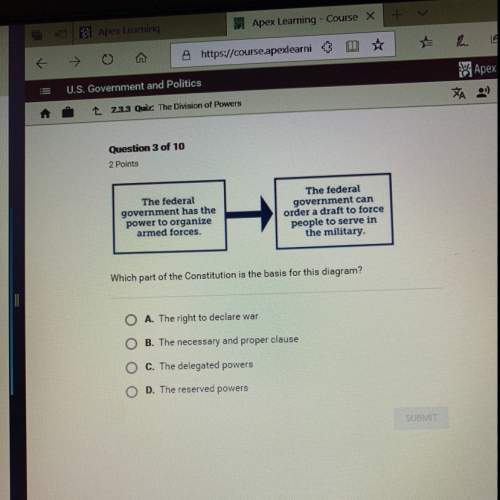
History, 02.06.2021 16:40 meiyrarodriguez
Please answer all questions in PROPER sentences.
Try to answer all questions.
Source 1: written by Millicent Fawcett to a friend in 1910.
I have tried to persuade the Pankhursts (leaders of the Suffragettes) of the damage their actions are causing the whole of the women’s movement. The breaking of windows, chaining themselves to railings, fighting in the street with police. The good men and women of this country cannot support this action. Those who agreed with women gaining the vote only a few years ago, would not admit it today. Politicians who were in talks with us now close their doors.
Source 2: open letter to the News of the World written by Emmeline Pankhurst in 1911.
There are many who will say we are wrong for taking militant action and we do more harm than good to the women’s cause. But I say to them, look at what peaceful methods and polite talk have done for the cause, nothing, we are no better today than we were in 1897 when the NUWSS started. We waited and tried the legal and proper ways, but we have been given no choice but to fight men in the language they know, violence. It is the politicians and press that have forced us to take these drastic measure, if they had listened then we would not be in this situation. We will no longer be ignored and look we are being talked about, this is why we have used direct action.
1. “Militant action was necessary in order to bring about change.” Which of the two sources can be used to support this view. Use evidence from the extract you choose to support your answer.
2. Why do sources 1 and 2 disagree about the effect and success of militant action? Who? When?
Read source 3 and answer question 3:
Extract 3: taken from a history textbook.
Prime Minister Asquith can be held accountable for the failure of the government to deal with the issue of the women’s movement. There is a direct correlation (link) between his actions over the Conciliation Bill in 1911 and the intensity of the Suffragette campaign. When Asquith changed the bill to include all men getting the vote it secured the bill’s failure. There was no chance parliament were going to give the vote to all men which meant the women lost out. Who can blame women for losing patience with the Prime Minister, he had given them hope only to snatch it away again. The biggest impact his actions had was on the suffragettes, they escalated their campaign of violence leading to many women being sent to prison. This in turn led to hunger strikes and Asquith ordering the force feeding of women (a tube forced down their noses into their stomachs and liquid food poured down). The dreadful treatment of women by the hands of the government led to great sympathy among the British public. Therefore, Asquith is key to understanding the growing support of the women’s movement before World War One.
3. Use source 3 and your own knowledge to explain how Prime Minister Asquith (1908-1916) led to growing support for the women’s movement after 1911.

Answers: 1


Other questions on the subject: History

History, 22.06.2019 02:00, armon6720
All of the following were weaknesses of the articles of confederation, except: a) the central government was not permitted to regulate state, interstate, or foreign trade. b) the central government was not permitted to borrow money. c) the central government had little ability to regulate money. d) the central government had no ability to tax.
Answers: 1


History, 22.06.2019 04:30, dinero2875
Define”to walk with a large group of people who are supporting something”
Answers: 2

History, 22.06.2019 10:00, Daddysgirl2019
Fascism is a political ideology that became popular in certain countries following world war i and was a response to fear of a. colonialism. b. communism. c. militarism. d. nationalism.
Answers: 2
You know the right answer?
Please answer all questions in PROPER sentences.
Try to answer all questions.
Source 1...
Source 1...
Questions in other subjects:

History, 23.07.2019 18:00

Mathematics, 23.07.2019 18:00






Mathematics, 23.07.2019 18:00






